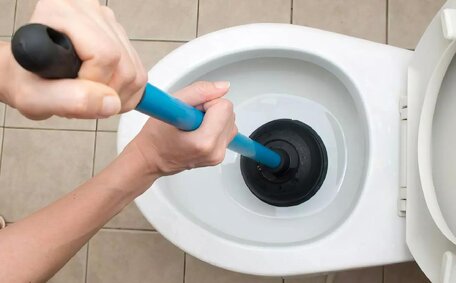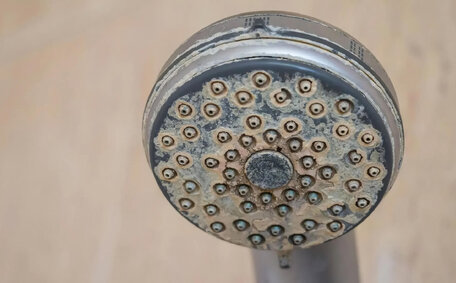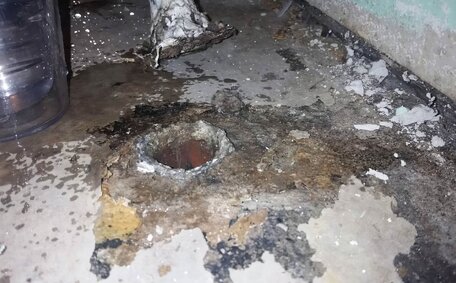Importance of Temperature for Safety and Bacterial Growth
Ensuring hot water is sufficiently heated is crucial to prevent scalding and minimise the growth of bacteria like Legionella. Australian plumbing regulations require storage tank water heaters to be set at 60°C for bacteria control, and continuous flow heaters to provide water not exceeding 50°C.
Avoiding excessive temperatures is essential to prevent risks like third-degree burns, especially in young children and elderly individuals. Failing to maintain proper water safety standards, thus allowing the proliferation of dangerous bacteria, occurs when temperatures fall below 50°C.
By law, every hot water plumbing system installation must be performed by a licensed plumber to make sure your water temperatures are safely managed. Hot water tempering valve checks must be regular, as these devices can set and fine-tune the delivery temperatures of your hot water system effectively.
Key Temperature Requirements
There are specific legal temperature limits for domestic hot water systems in Australia:
- Hot water storage tanks must be set to store water at 60°C to control bacteria.
- Instantaneous water heaters must be installed with a tempering valve to ensure delivery water does not exceed 50°C, preventing scalds.
- For facilities housing vulnerable people like young children, elderly etc, a control device stipulates the maximum temperature for your hot water tap is 45°C.
These critical regulations, which ensure hot tap water is hot enough and temperature-controlled for safe use, are outlined as state-endorsed mandates in AS/NZS 3500, the national plumbing compliance code. Reputable plumbers make sure your system has the necessary temperature gauges and anti-scald valves to keep your water hot and safe, whether it’s a new or existing hot water system.
It’s imperative that the hot water system maintains temperatures that control bacteria without compromising safety. Contact our expert plumbers to install, repair, or service the water system directly connected to your tap for your peace of mind.
Installing Control Devices to Manage Temperature
Temperature control devices are essential to ensure the regulation of hot water delivery temperatures, providing peace of mind. Australian plumbing standards stipulate that professionals must install tempering valves or thermostatic mixing valves on all hot water systems for domestic and commercial use.
These valves automatically turn hot water from the water heater and cold water into a blend ensuring a safe delivery temperature below 50°C. These devices help reduce scalding risks by keeping water at temperatures that inhibit bacteria, ensuring its safe use.
According to AS/NZS 3500, all new storage water heaters must have a tempering valve on the new hot water line. Instantaneous systems, whether they’re part of an electric or gas hot water setup, must have a thermostatic mixing valve to regulate the temperature to a safe 50 degrees centigrade.
It is crucial that valves are installed near the heater outlets of your water system, whether new or existing, to ensure their effectiveness. Licenced plumbers, while adhering to detailed water system installation guidelines provided by Australian regulators, position valves correctly and reliably temper water.
Upgrading your old system? A licenced plumber can guarantee that your new hot water system is equipped with approved temperature control devices appropriate for your particular water heater model. We handle the entire installation process and ensure full compliance with Australian standards for safe, efficient operation.
Ongoing System Maintenance for Compliance
Compliance with Australian plumbing regulations requires routine checks of your hot water system by qualified technicians.
Maintenance is key to keeping your components like heating elements, a properly functioning relief valve, and pipes in good working order, maintaining the optimal hot water temperature.
AS/NZS 3500 mandates several key maintenance requirements:
- Annually inspect your hot water tank to verify 60°C temperature, check valves, and replace anodes if corroded.
- For instantaneous heaters, inspect mixing valves every 5 years and replace if faulty to maintain 50°C output.
- Inspect expansion control valves on all heat pump hot water systems and solar systems yearly.
- Flush and disinfect solar hot water systems or gas storage tank systems if bacteria count exceeds allowable limits.
Keep all drip trays clear, check pipe seals for leaks, and monitor energy efficiency, Should issues occur, it’s recommended to reach out to a plumber near you immediately for repairs.
Consistent professional maintenance is vital, particularly when hot water output doesn’t meet standards, to ensure safety and optimal performance. It also extends system lifespan, avoiding costly pre-mature replacement.
Contact us today on 1300 349 338 for dependable scheduled servicing that maintains safe hot water temperatures in your home or business, performed by fully certified plumbers.
Consequences of Non-Compliance
Non-compliance with crucial hot water system regulations can lead to considerable safety risks and legal consequences. Key consequences include:
- Risk of severe scalding from water that’s excessively hot, especially for those vulnerable such as young children and the elderly.
- Possibility of fatal Legionnaires’ disease if bacteria proliferate due to insufficient temperature.
- Fines up to $15,000 for non-compliant installation under plumbing codes.
- Voiding of insurance claims and liability for damages caused by faulty systems.
Licensed plumbers must install devices such as tempering valves in accordance with Australian Standard AS/NZS 3500. Homeowners are also responsible for ensuring proper maintenance to adhere to the Code Australia.
If your system is outdated or you are unsure of its compliance status, contact our expert team today to inspect and upgrade to the latest safety standards.
Gas vs Electric Hot Water Systems
When selecting from the different types of hot water systems available for your home, consider factors like safety, efficiency, environmental impact, and operating costs. Gas and electric hot water systems differ in strengths and are subject to different regulations.
Safety Regulations
In terms of scalding risk, both electric and gas heaters must have tempering valves installed to ensure delivery water does not exceed 50°C. For gas systems with rapid heating capabilities, proper fluing and small-scale technology certificates (STCs) must be in place to prevent the risk of carbon monoxide leaks.
Efficiency and Energy Use
Well-maintained gas water heaters, more energy-efficient, may qualify for technology certificate incentives and typically use around 20 per cent less energy than leading electric heaters. Conversely, solar and heat pump systems, as small-scale technologies, utilize renewable energy and produce about 65 per cent less greenhouse gas emissions than conventional models.
Upfront and Operating Costs
Modern gas storage systems have lower initial costs than electric alternatives, with installation prices starting under $2000. However, electricity is often more affordable than natural gas in many regions.
When selecting a team to update or replace your hot water system, consult our plumbers to meet your family’s needs, considering incentives like STCs. Our licensed professionals are skilled in the compliant installation and servicing of both gas and electric systems.






